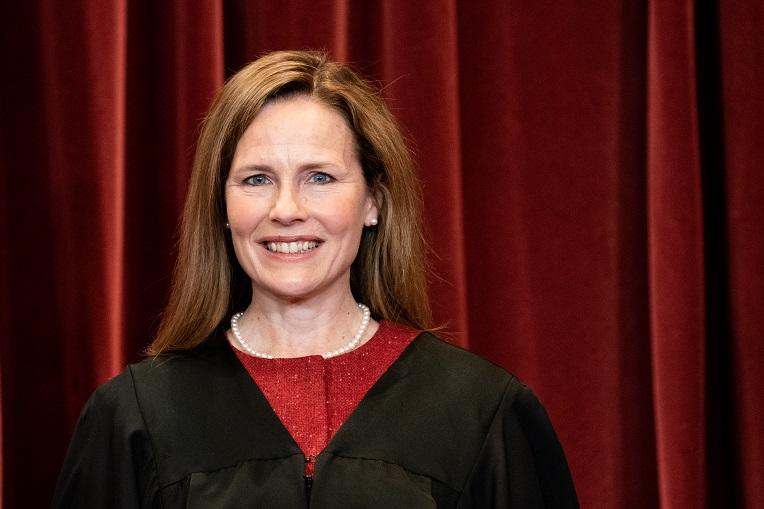Supreme Court Justice Amy Coney Barrett has voiced her support for the nation’s highest court adopting a formal code of conduct following multiple reports alleging ethical shortcomings.
Justice Barrett made the comments on Oct. 16 while speaking at the University of Minnesota Law School, just months after Senate Democrats advanced the Supreme Court Ethics, Recusal, and Transparency Act (SCERT) of 2023, legislation that would mandate a binding ethics code for the Supreme Court.




